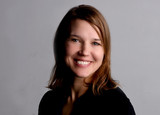-
Phyllis Bußler Research Associate

- Phone
- +49-221-470-2677
- Fax
- +49-221-470-5009
-
bussler
wiso.uni-koeln.de
- Room
- 312
- Building
- 113
- Address
- Meister-Ekkehart Str. 9 50937 Cologne
Consultation hours
Wednesdays from 11:00 - 13:00 only by prior arrangement via e-mail.
Please pay attention to changed consultation hours on the news page.
Curriculum Vitae
Phyllis Bußler (pronouns: she/her) has been a research assistant at the Institute of Economic and Social Geography of the Faculty of Management, Economics and Social Sciences at the University of Cologne since December 2014. In the context of her doctorate, Phyllis Bußler is working from the perspective of cultural political economy on the transnational mobilisation of civil society against the ProSAVANA agricultural industrialisation project in Mozambique. ProSAVANA was a controversial trilateral agricultural industrialisation project between Mozambique, Brazil and Japan, which was marketed as "South-South cooperation". As part of her qualitative data collection, she completed research stays in Mozambique (2016, 2017), Brazil (2017) and Japan (2018), some of which lasted several months and were funded by the DAAD. Since 2020, Phyllis Bußler has officially represented Prof.' Dr.' Martina Fuchs in her role as Equal Opportunities Officer of the Faculty of Economic and Social Sciences. She currently alternates between teaching the two English-language Bachelor's courses "Innovation and sustainable Development in the Global South" and "Regional Policies and Sustainability".
Phyllis Bußler studied Regional Sciences of Latin America at the University of Cologne from 2006 to 2013, with a focus on the Lusophone language area and economic geography. As part of the European exchange programme ERASMUS, she spent a semester abroad at the University of Lisbon in 2008. For her thesis titled "Project-based urban development in Rio de Janeiro: displacement processes, spatial segregation and social exclusion in the context of the 2014 World Cup and the 2016 Olympic Games.", Phyllis Bußler spent two months in 2012 at the Research Institute for Urban and Regional Planning at the Federal University of Rio de Janeiro (IPPUR/UFRJ), Brazil. This was funded by the DAAD's PROMOS scholarship programme.